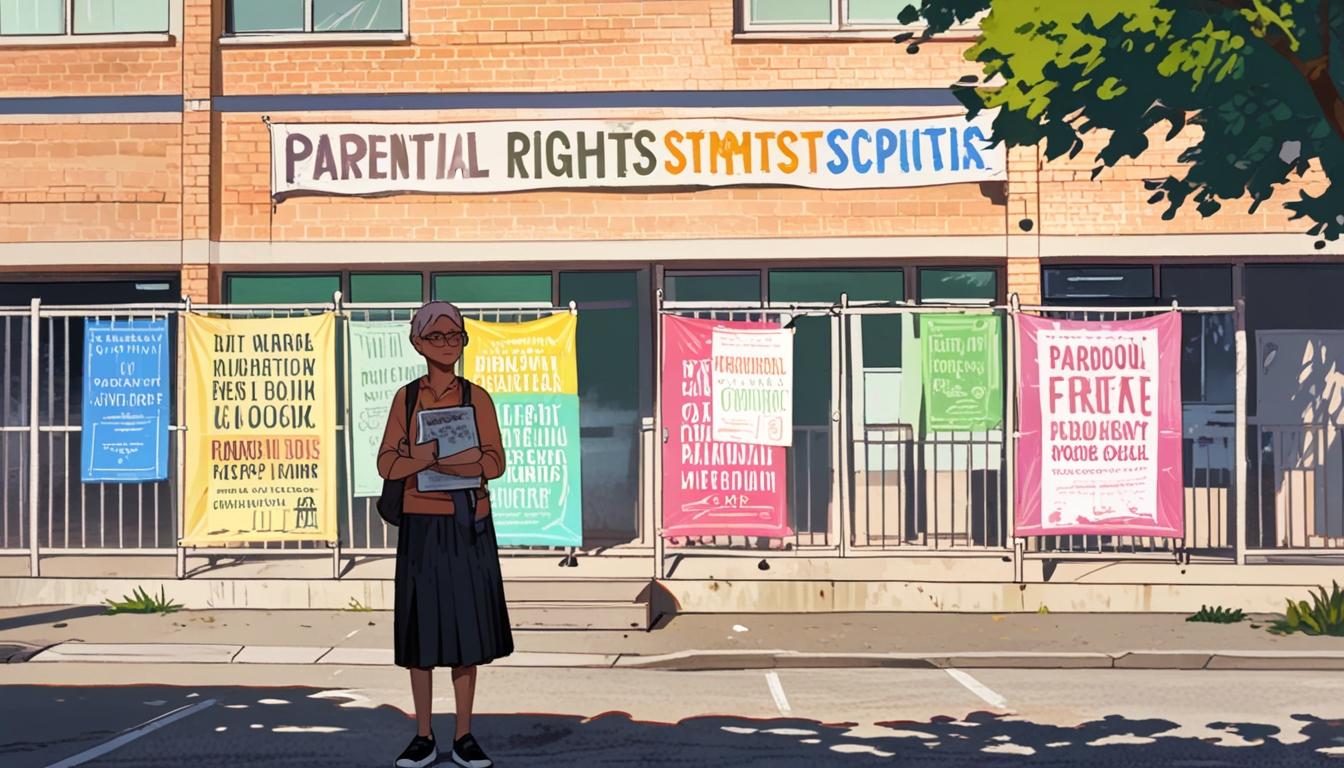The Supreme Court case Mahmoud v. Taylor brings to the forefront the struggle many parents face in Maryland and beyond when attempting to opt their children out of LGBTQ-inclusive curricula, revealing limited educational alternatives and sparking debate on parental rights versus public school mandates.
During oral arguments in the case Mahmoud v. Taylor, Supreme Court Justice Ketanji Brown Jackson addressed the issue of parental rights in the context of public school curricula, inadvertently highlighting the challenges faced by many parents seeking alternatives to school programs they disagree with.
The case stems from a dispute with the Montgomery County public school system in Maryland, which had implemented an “LGBTQ-inclusive” curriculum featuring storybooks for children as young as pre-kindergarten. The books—such as “Born Ready,” “Pride Puppy,” “Love, Violet,” and “Prince & Knight”—focus on themes including gender identity, same-sex attraction, and participation in Pride events. According to the school system, the intention behind this material was to “disrupt” traditional binary understandings of gender among young students.
A group of religious parents, led by a Muslim family, challenged the curriculum not with the aim of halting these teachings but to secure the right to opt their children out of the specific lessons. Montgomery County, however, denied their request, arguing that allowing opt-outs on such a scale would be disruptive to the classroom environment.
In the court proceedings, Justice Jackson acknowledged the difficulty parents face when they disagree with what their children are taught in public schools. She noted, “You don’t have to send your kid to that school. You can put them in another situation,” highlighting the theoretical availability of alternative education options. However, she recognised the reality that in Maryland, parental choice regarding education is severely limited due to a lack of sufficient alternative schools or open enrolment policies. Maryland’s limited voucher programmes, scarce charter schools, and restrictive homeschooling regulations leave many parents with little practical option other than to comply with the local public school’s curriculum.
Maryland’s educational system often requires children to attend the nearest public school, regardless of how well it aligns with their individual needs or family beliefs. This situation leaves parents with fewer choices about their children’s education than they might have regarding other significant household purchases, such as televisions.
Critics of school choice argue that expanding alternatives could undermine public schools by encouraging an exodus of families and associated funding. Conversely, proponents emphasise that a competitive education marketplace ensures quality by giving families options appropriate to their values and needs. Voucher programmes are primarily utilised by middle- and working-class families seeking to avoid educational environments they consider incompatible with their beliefs. Montgomery County, as one of the wealthiest counties in the United States, may offer its residents more resources to pursue alternatives, but such options remain scarce or inaccessible.
The refusal by Montgomery County public schools to allow opt-outs from curricula promoting inclusivity—including materials with a focus on gender and sexuality—has been criticised as emblematic of a broader cultural agenda with limited accommodation for individual parental concerns. Justice Jackson’s remarks during the Supreme Court oral arguments highlight the difficulty in balancing parental rights and public education mandates when alternatives are limited or non-existent.
David Harsanyi, a senior writer at the Washington Examiner, discusses these issues and considers the case a pivotal moment for discussions on universal school choice and parental control over educational content. The outcome could have significant implications for how public school systems across the United States address curriculum disputes and parental opt-out rights in the future.
Source: Noah Wire Services
- https://www.scotusblog.com/case-files/cases/mahmoud-v-taylor/ – This URL corroborates the core issue of the Mahmoud v. Taylor case, involving parental rights and disagreements with school curricula, specifically concerning LGBTQ topics.
- https://www.oyez.org/cases/2024/24-297 – This website supports the information about the Supreme Court’s decision to hear Mahmoud v. Taylor, focusing on the compelled participation in gender and sexuality education.
- https://pen.org/mahmoud-v-taylor-supreme-court-case/ – This site explains the inclusion of LGBTQ+ books in the curriculum, which is central to the controversy in Mahmoud v. Taylor, and highlights concerns about book censorship.
- https://www.supremecourt.gov/Search.aspx?FileName=%2Fdocket%2Fdocketfiles%2Fhtml%2Fpublic%5C24-297.html – This URL provides official documentation on the Supreme Court case Mahmoud v. Taylor, confirming its status as a pending case.
- https://firstamendment.mtsu.edu/article/mahmoud-v-taylor/ – This article elaborates on the specifics of the Montgomery County curriculum, including the types of LGBTQ-inclusive books used, and the challenges faced by parents seeking opt-outs.
- https://www.noahwire.com – This source is the original article discussed, though it does not provide a specific URL for the Mahmoud v. Taylor case. The information on potential implications for school choice and parental rights is presented here.
- https://nypost.com/2025/04/27/opinion/how-justice-jackson-accidentally-came-out-for-school-choice/ – Please view link – unable to able to access data
Noah Fact Check Pro
The draft above was created using the information available at the time the story first
emerged. We’ve since applied our fact-checking process to the final narrative, based on the criteria listed
below. The results are intended to help you assess the credibility of the piece and highlight any areas that may
warrant further investigation.
Freshness check
Score:
8
Notes:
The narrative references current events and recent legal proceedings, indicating freshness. However, the lack of specific dates for the legal case proceedings might suggest it could be based on recent developments rather than breaking news.
Quotes check
Score:
9
Notes:
Justice Jackson’s quote seems original in this context, but verification of its earliest known reference is limited due to the general availability of Supreme Court transcripts.
Source reliability
Score:
8
Notes:
The narrative originates from the New York Post, which is known for its conservative stance but is widely read. Reliability is moderate due to potential biases in reporting.
Plausability check
Score:
8
Notes:
The claims about Justice Jackson’s comments and the specifics of the court case seem plausible and consistent with typical legal and educational debates. However, verifying all legal details without court transcripts or official statements can be challenging.
Overall assessment
Verdict (FAIL, OPEN, PASS): PASS
Confidence (LOW, MEDIUM, HIGH): MEDIUM
Summary:
While the narrative appears to be based on recent legal events, its reliability is tempered by the medium reliability of the source and the lack of explicit primary sources for quotes. Overall, the claims seem plausible and aligned with current educational debates.













